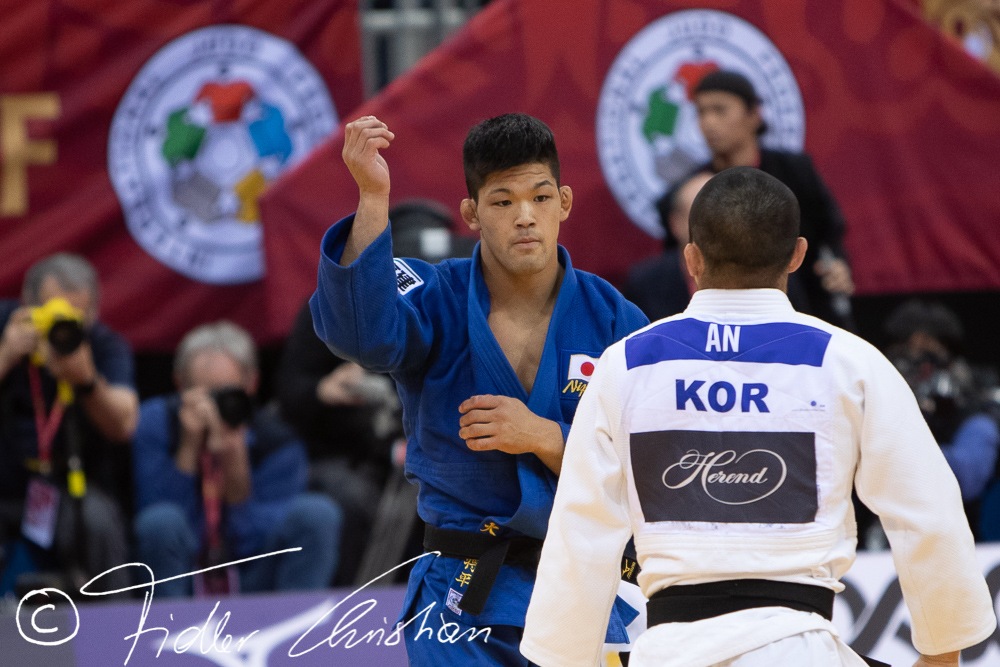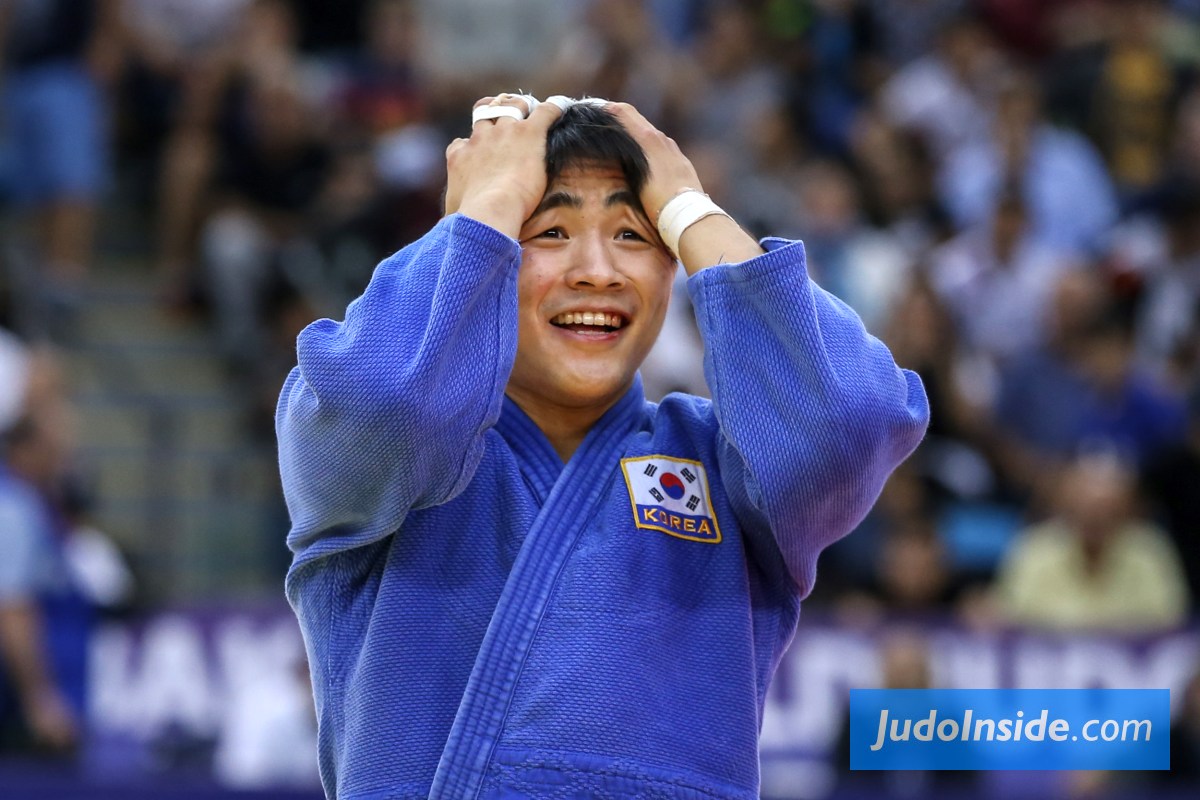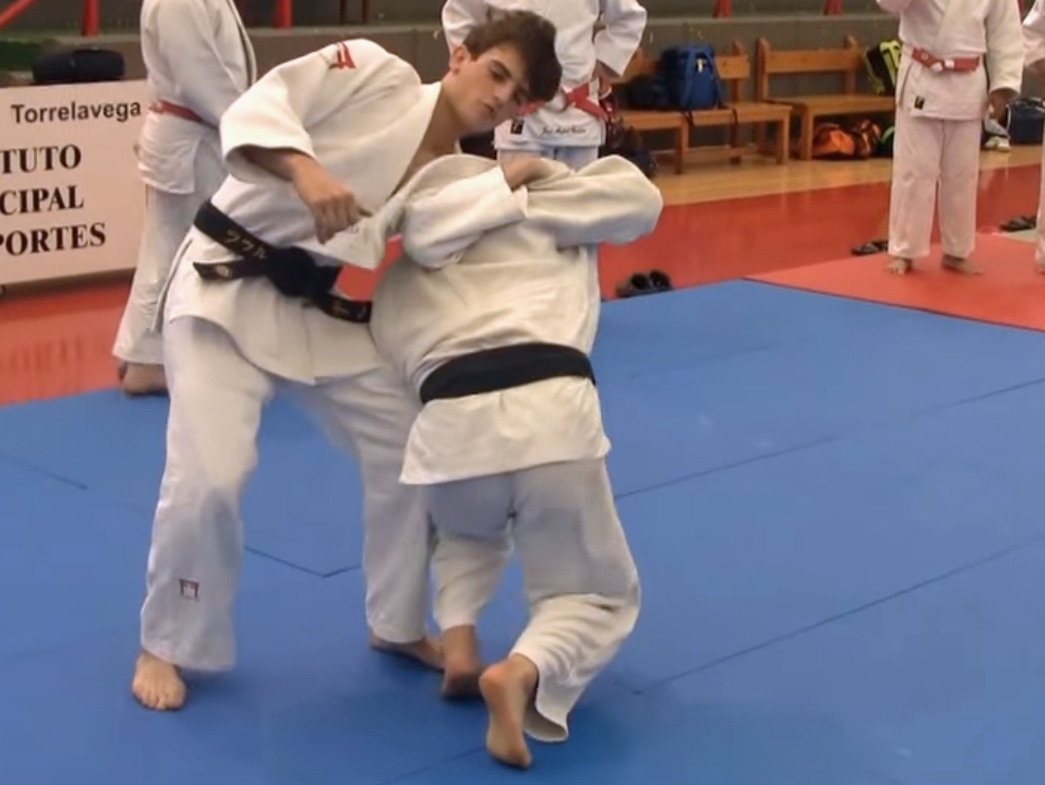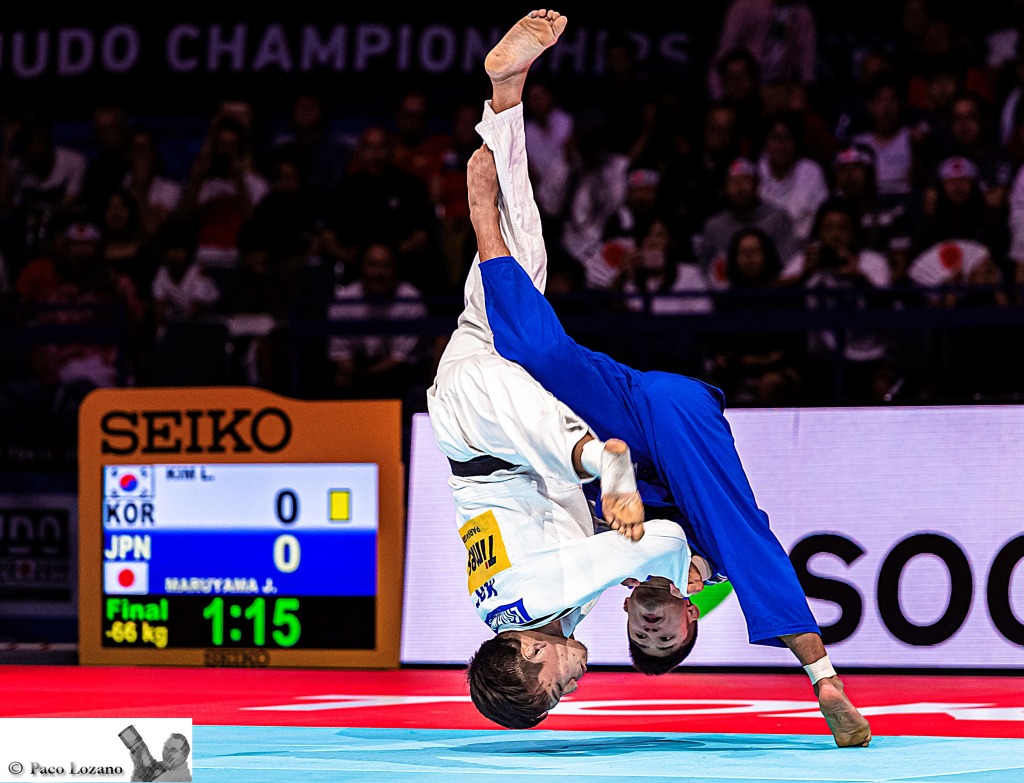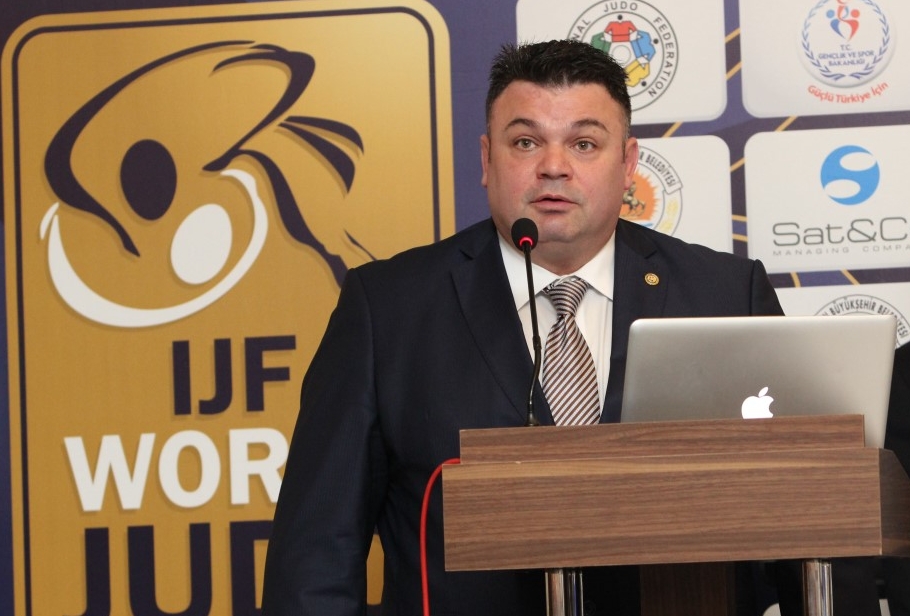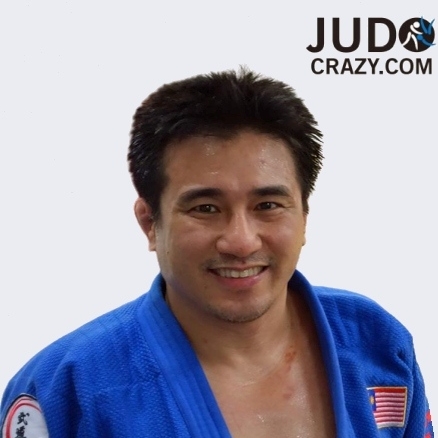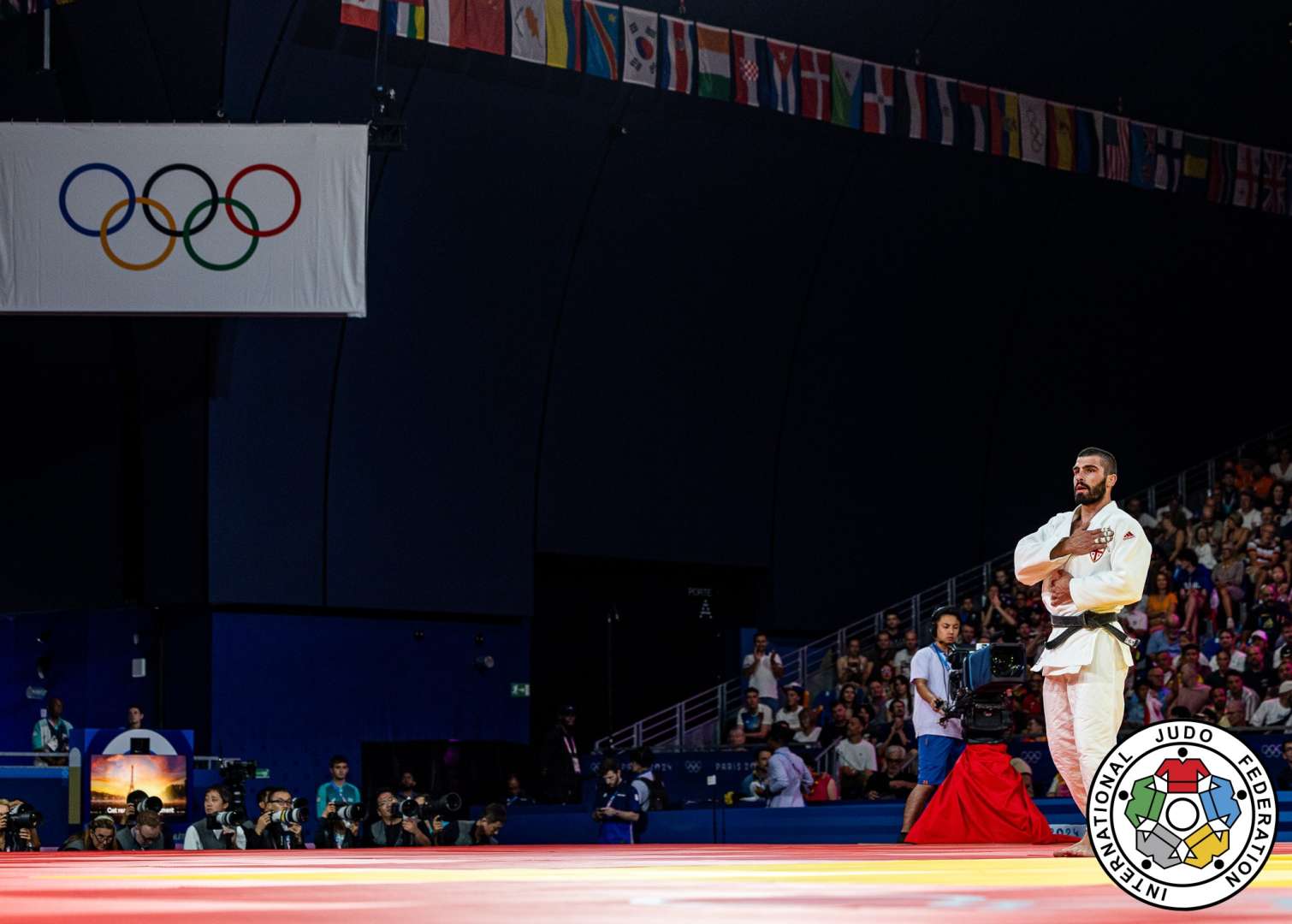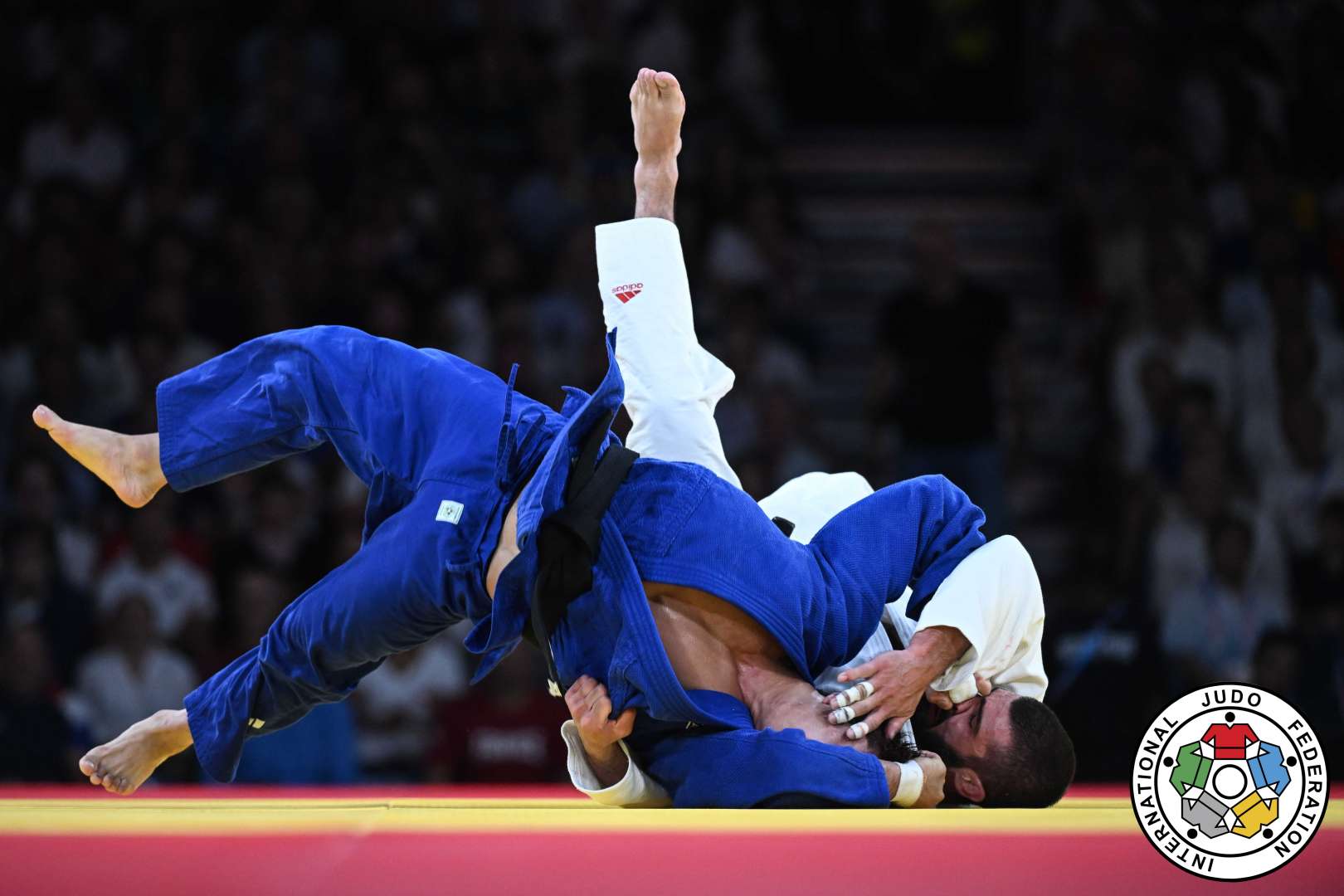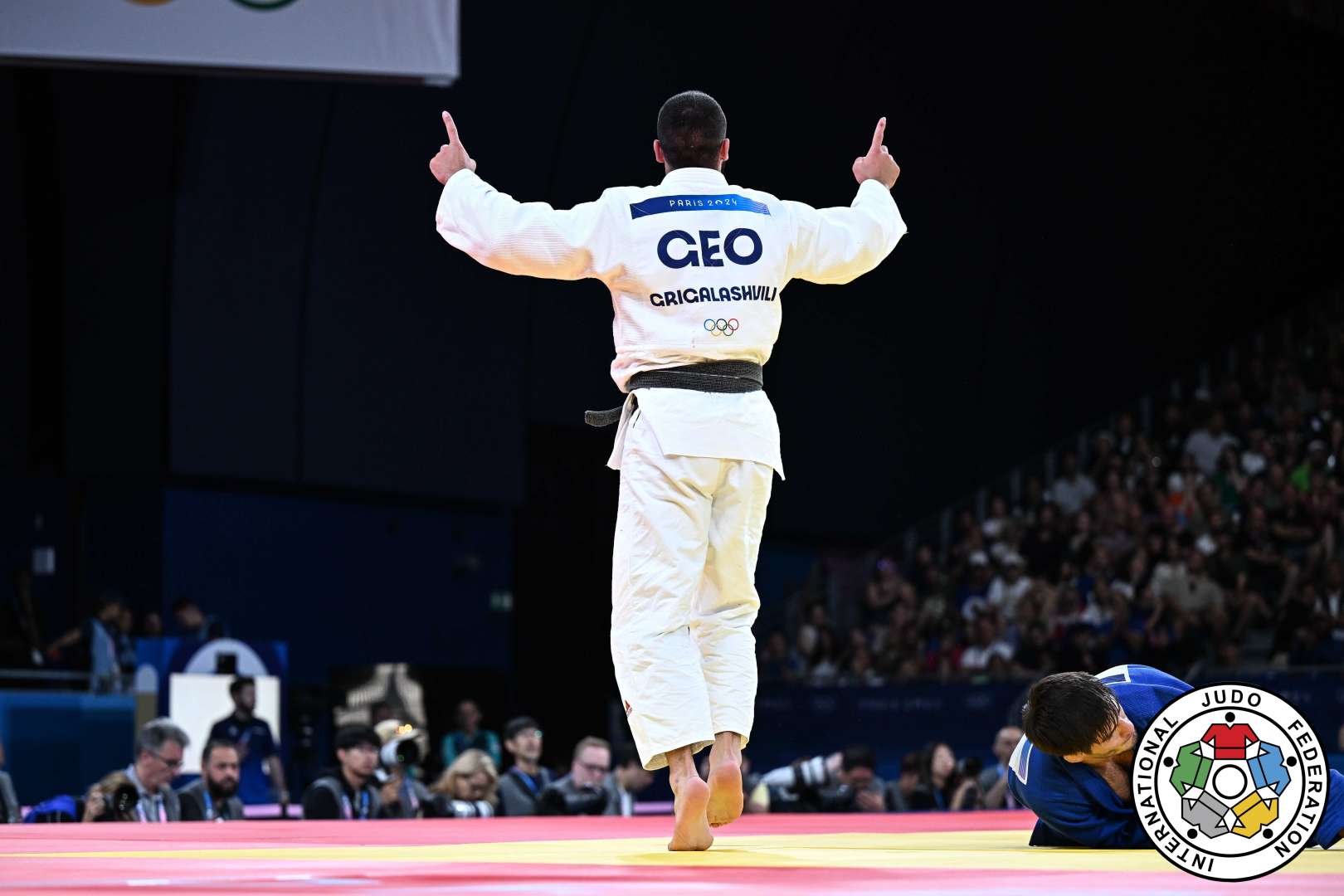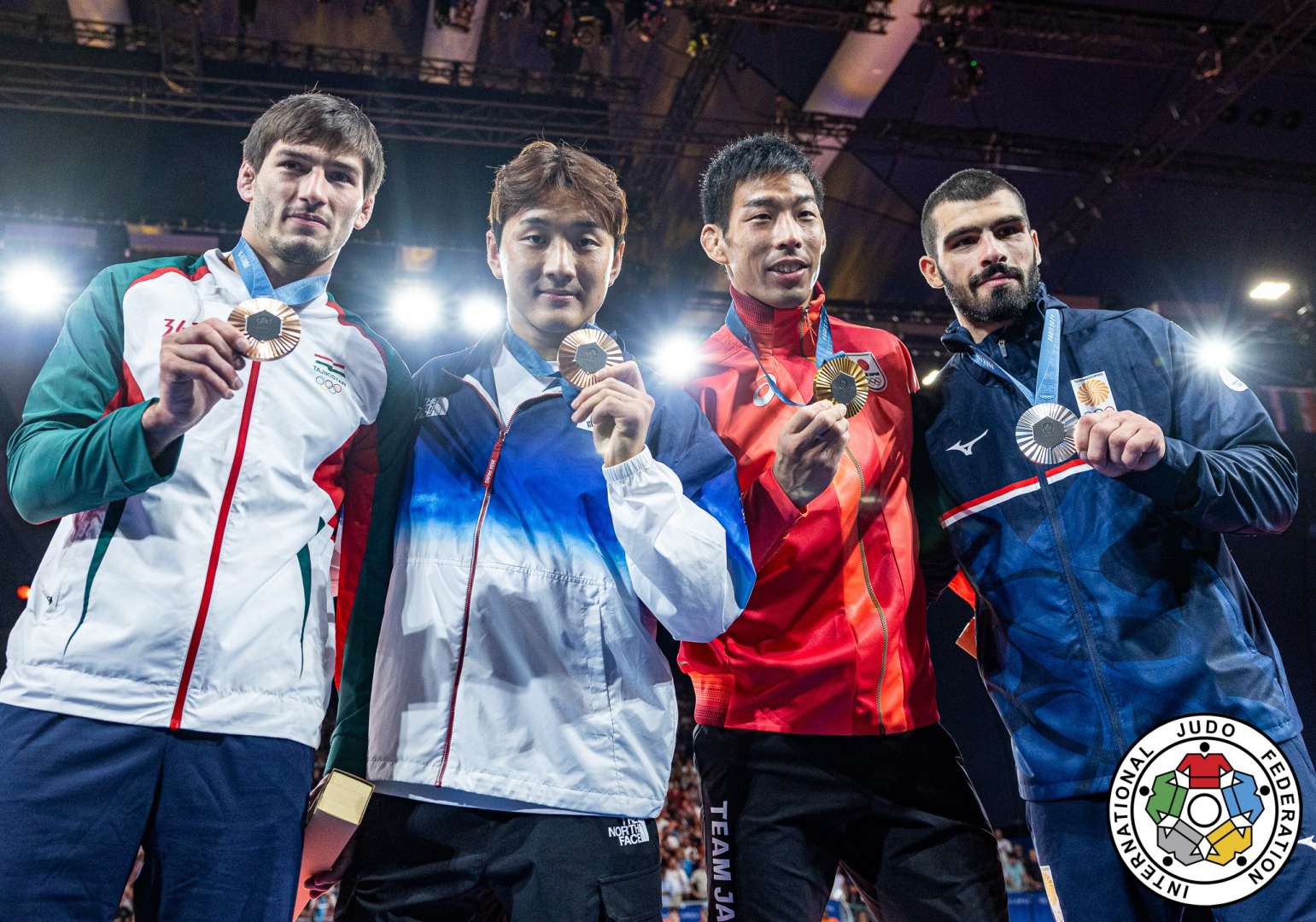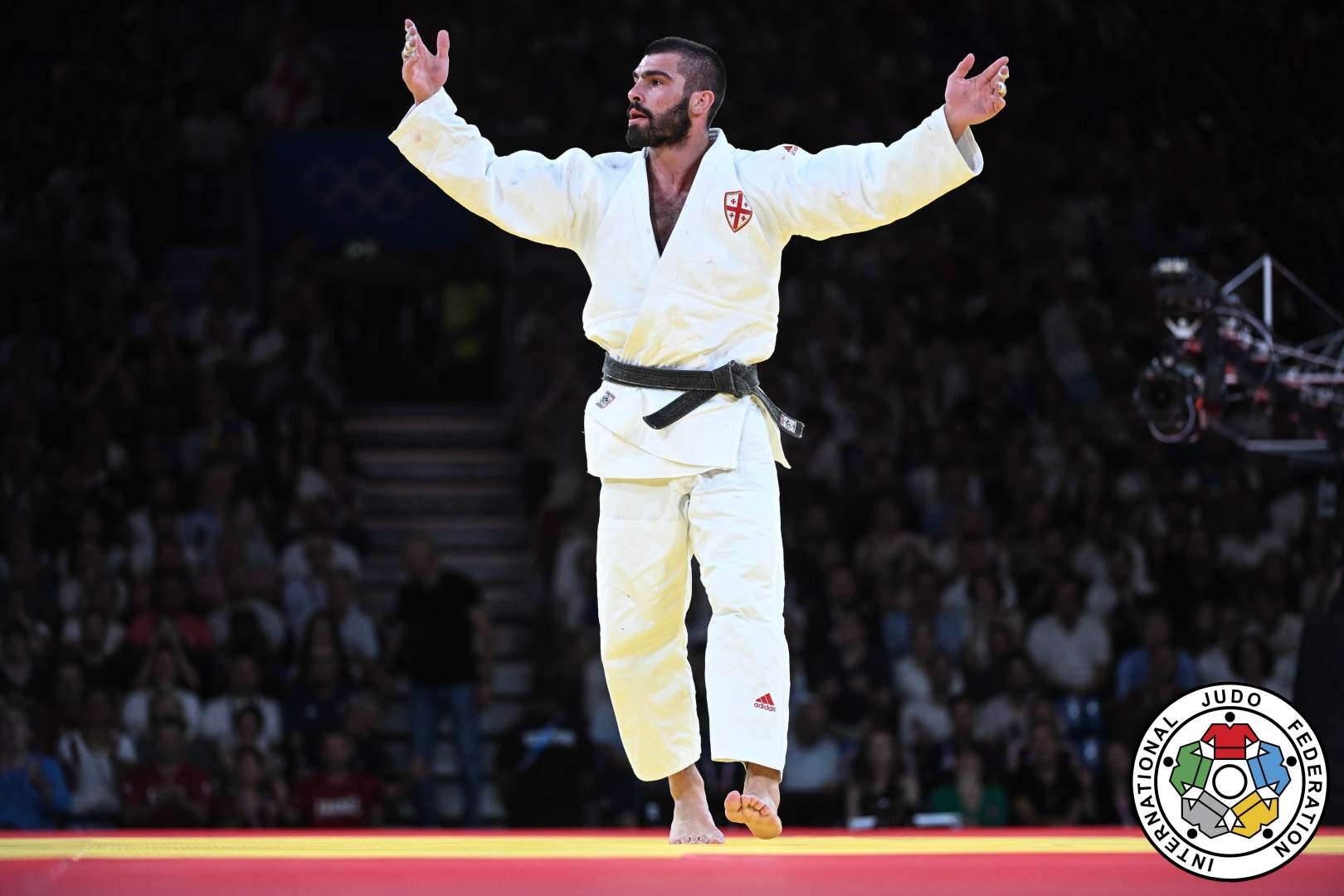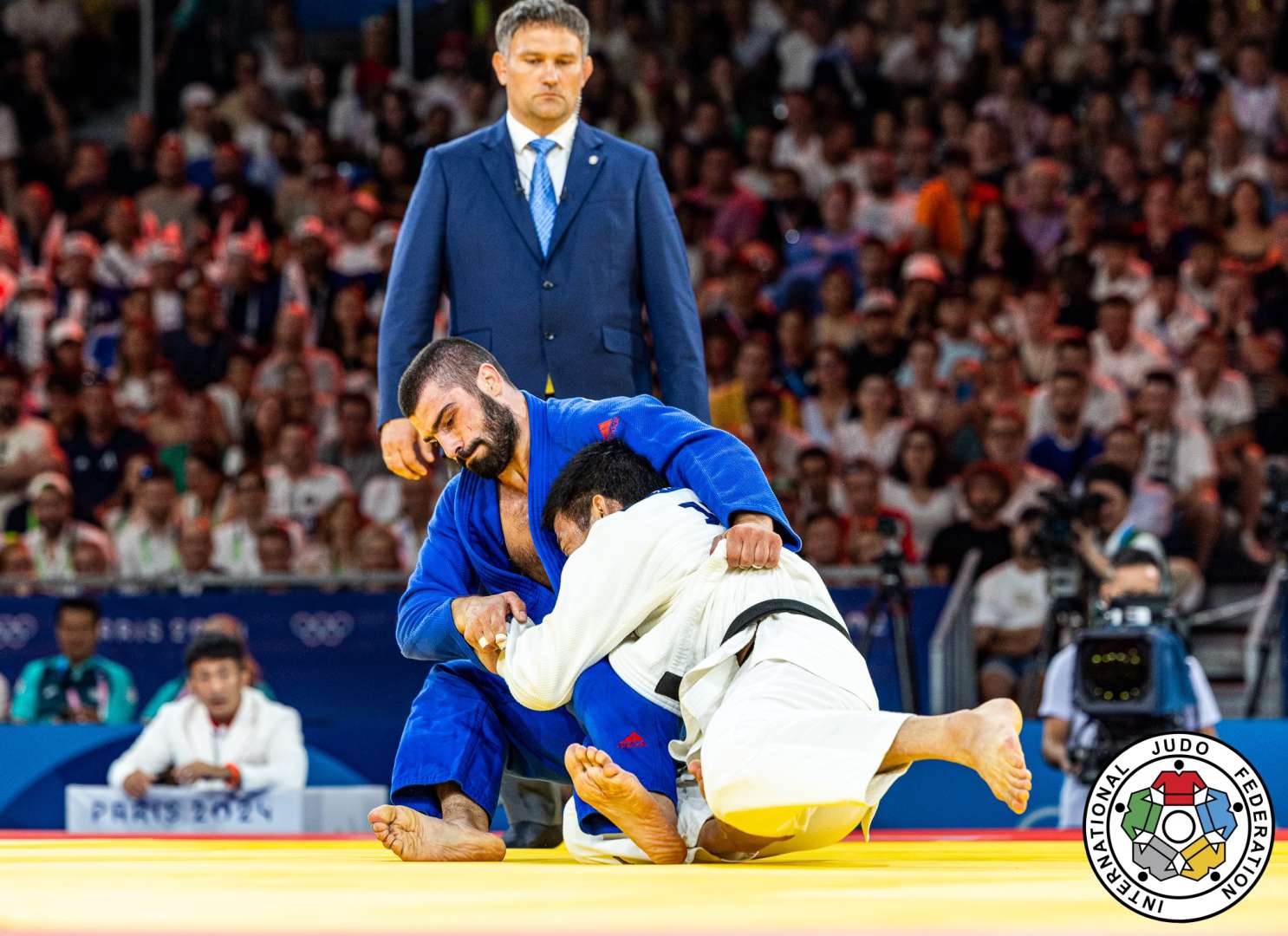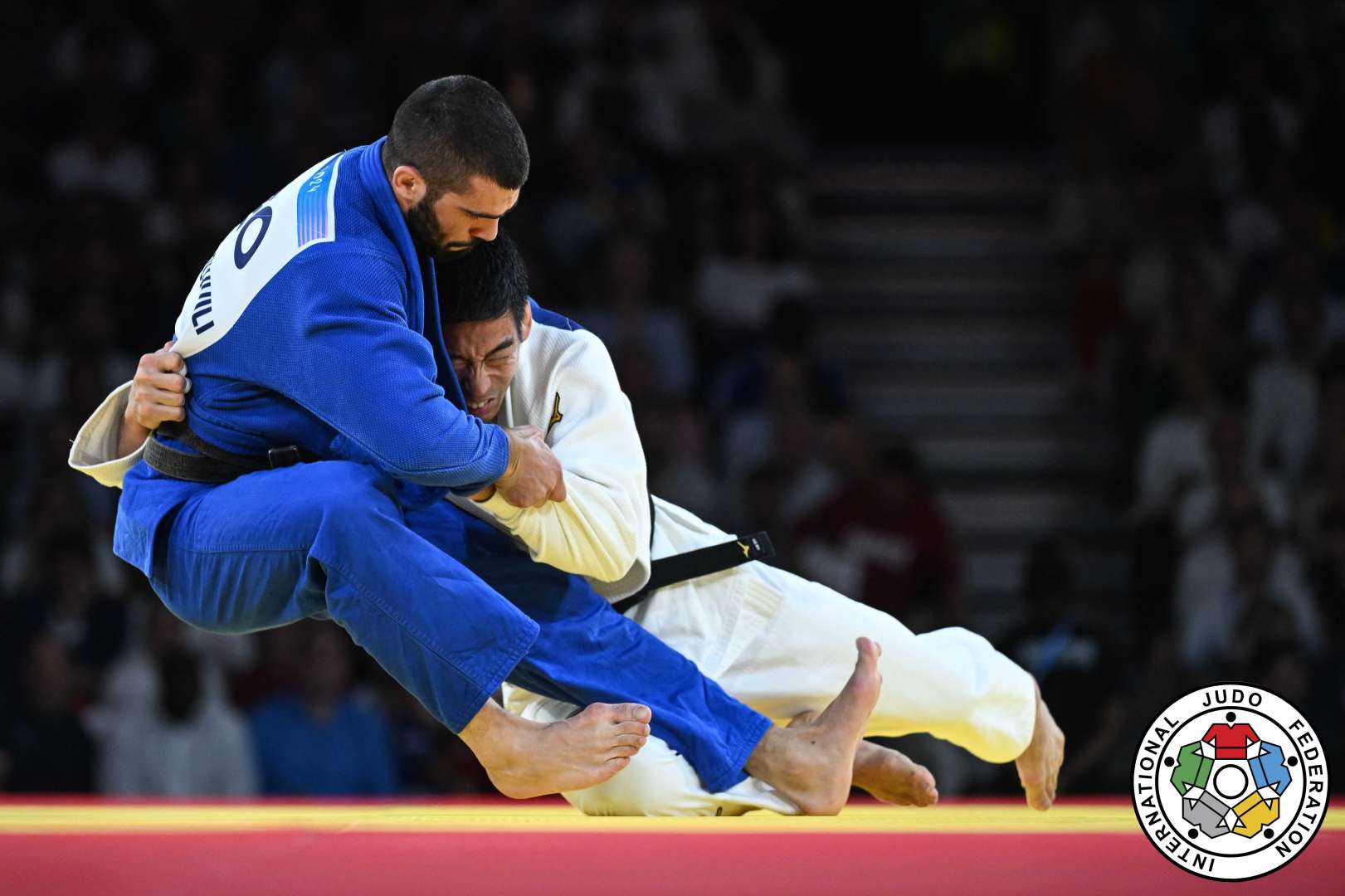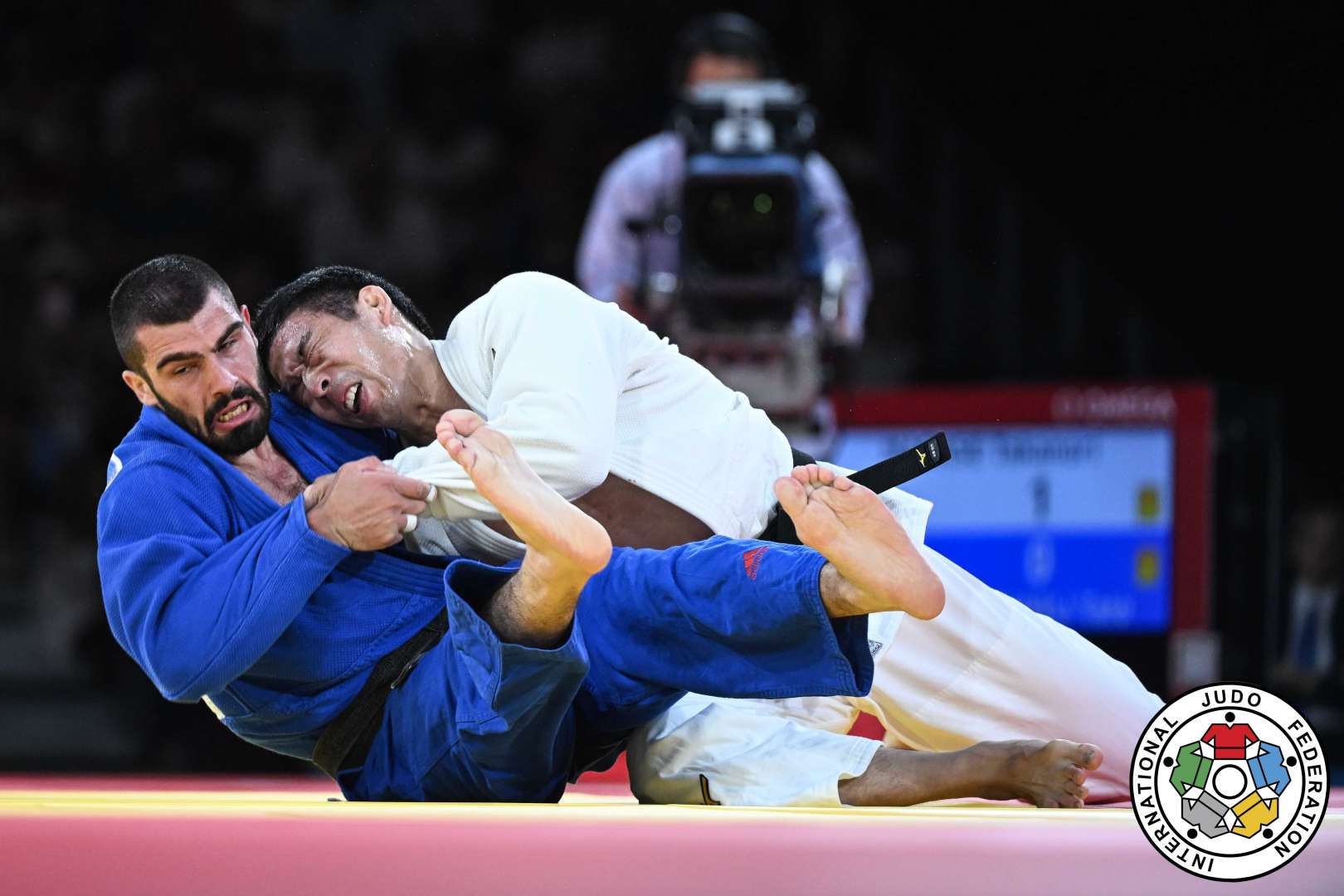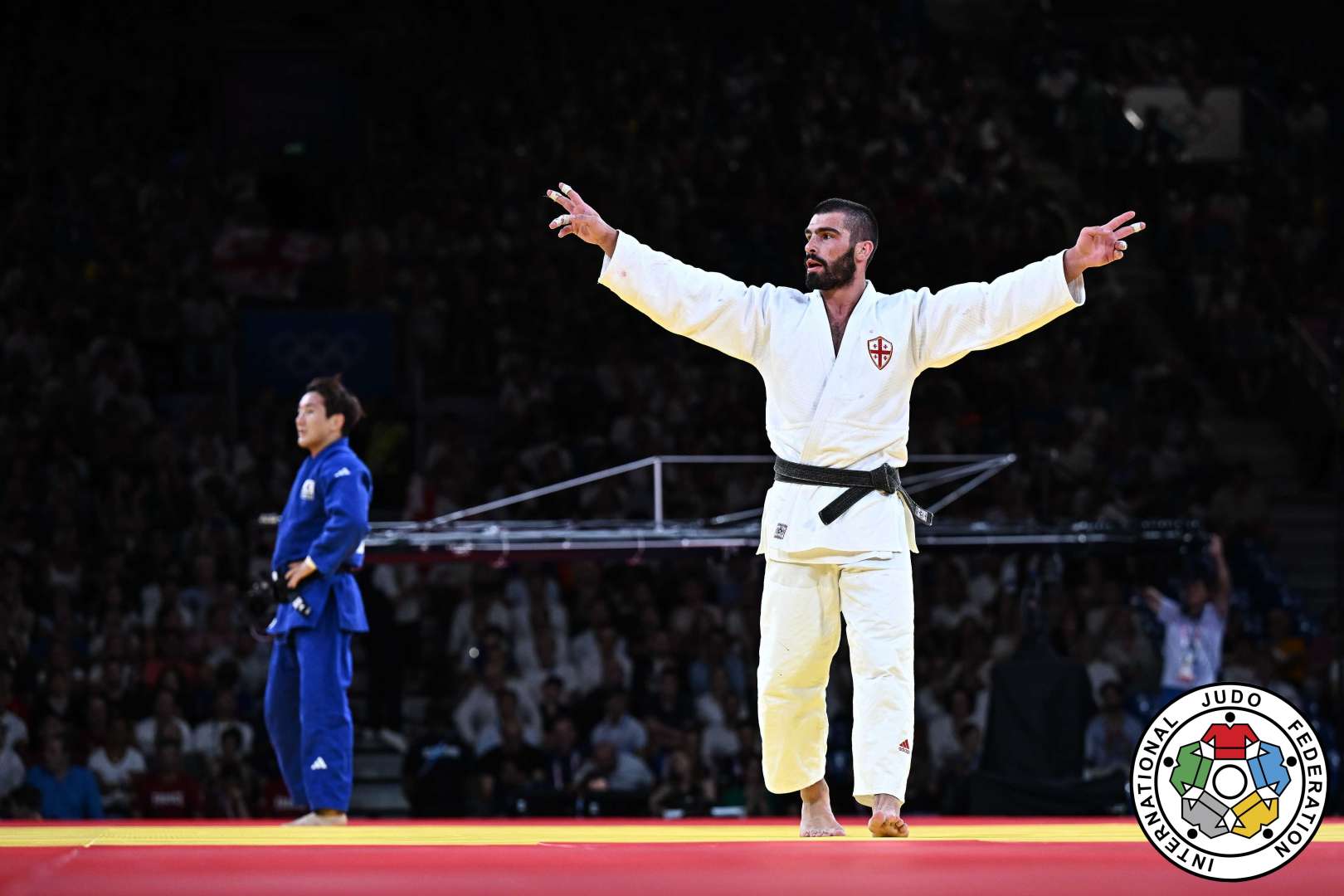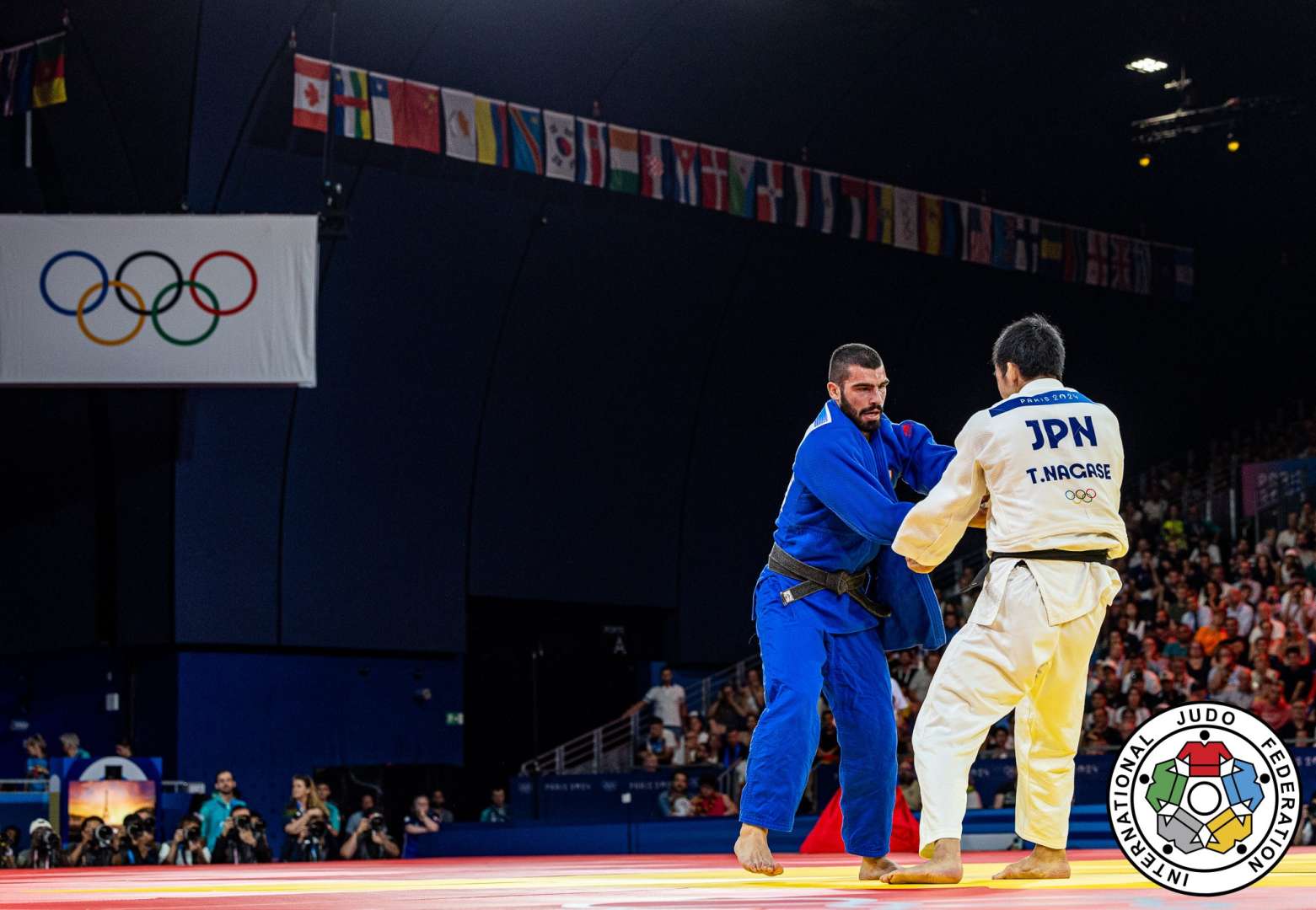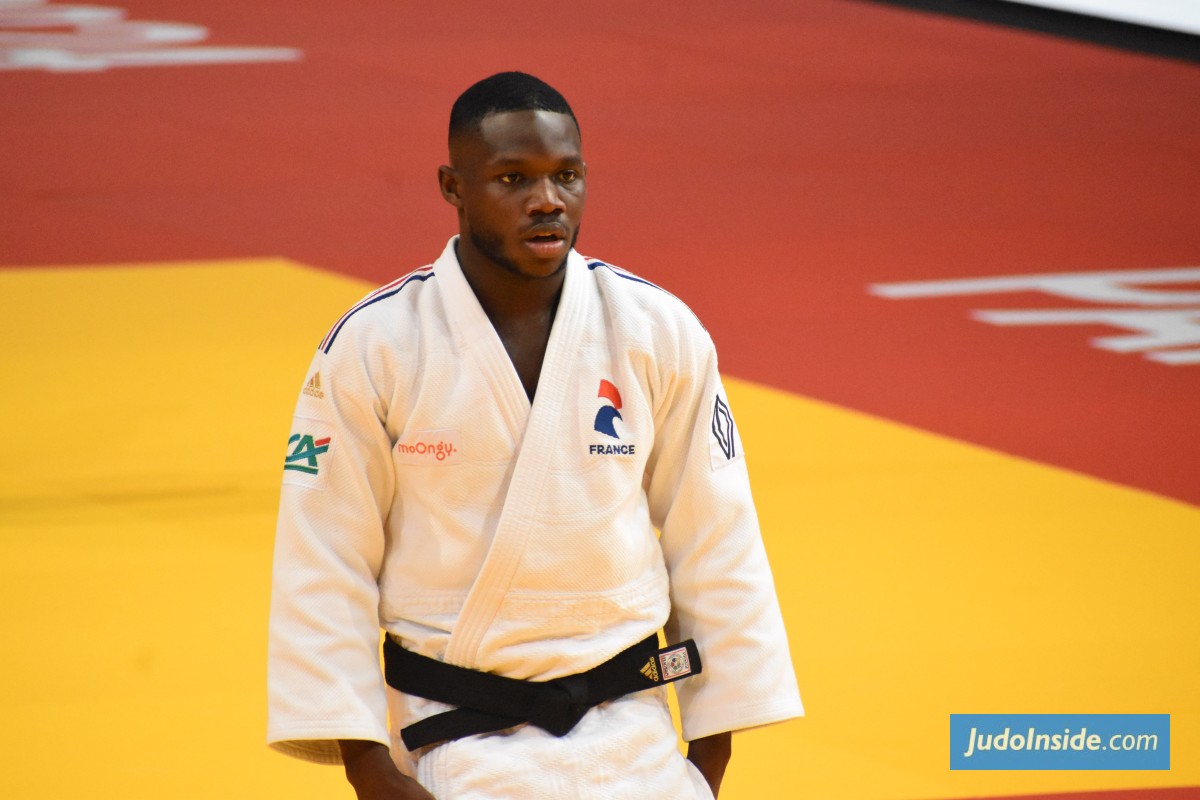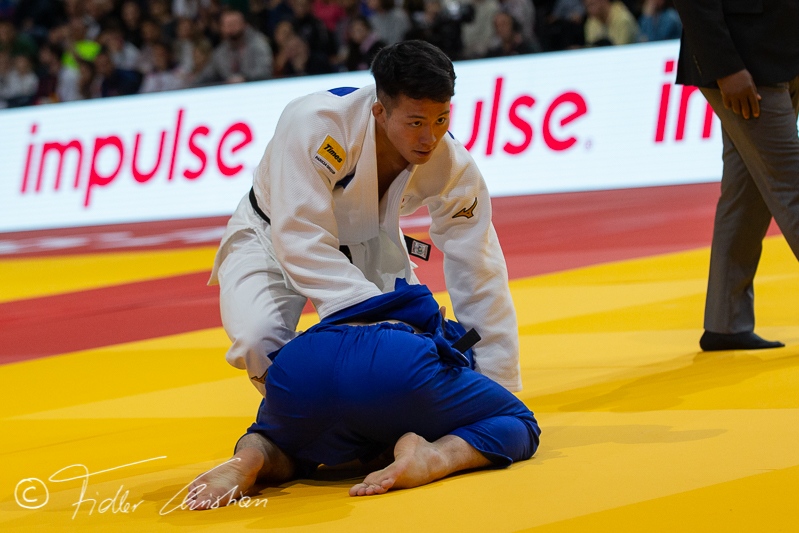Judo in the time of Covid-19: An Chang-Rim
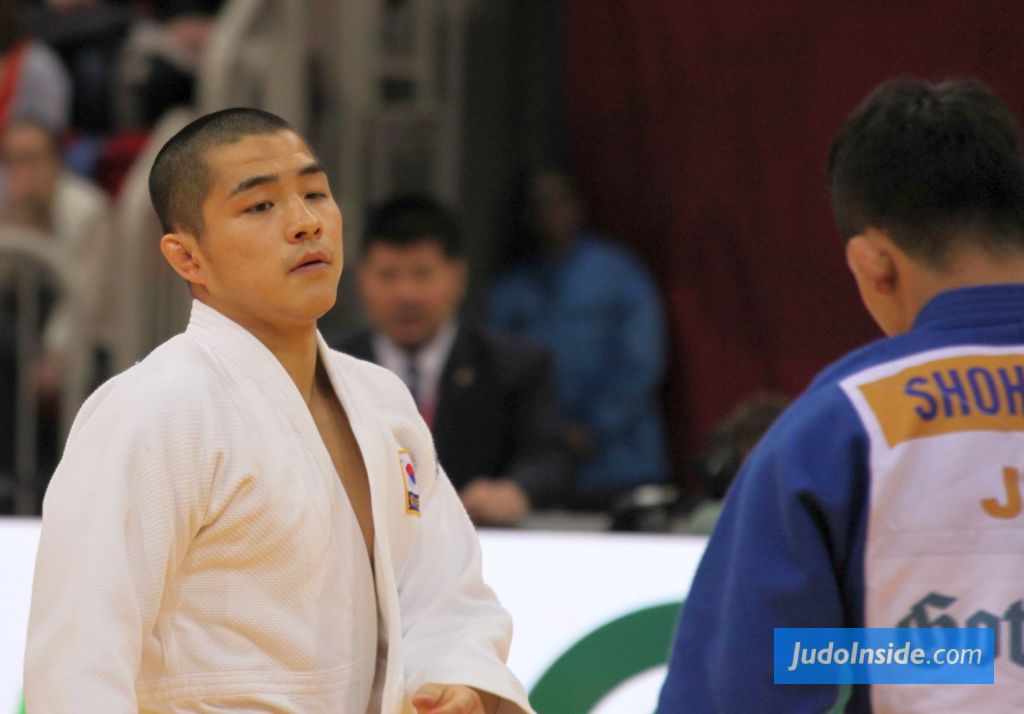
 22 Apr 2020 12:25
22 Apr 2020 12:25
 JudoCrazy by Oon Yeoh
JudoCrazy by Oon Yeoh
 JudoInside.com - Hans van Essen / judo news, results and photos
JudoInside.com - Hans van Essen / judo news, results and photos
Korean judoka An Chang-Rim became World Champion in 2018 Baku after having won bronze in 2015 and 2017. An was World Junior Champion in 2014 in Miami. He won Grand Slams in Paris and Abu Dhabi. He was born in Japan where he learned the first basics but finetuned his skills in Korea. JudoCrazy’s Oon Yeoh asked him about training in this Covid-19 period.
JIC: Is it true that in South Korea, some top players are still able to do judo training?
AC: Yes, I’m doing restricted training with no outsiders allowed. Just with three or four teammates from my club.
JIC: What type of training do you normally do?
AC: My training varies depending on which part of the competition cycle it is but basic training typically includes four modules. From 6.00am to 8.00am, I’d work on cardio. From 10.00am to 12.00pm, it’s strength training. From 3.00pm to 5.00pm, it’s randori time. Finally, from 8.00pm to 9.00pm, I’d do technique training.
JIC: How many randoris would you do in a typical session?
AC: That again varies depending on the season but on average, I’d say 10 to 12 times per session.
JIC: You were born in Japan and formerly trained at Tsukuba University in Japan before transferring to Yong-In University in South Korea. Is the training very different?
AC: It’s very different. In Tsukuba, students are encouraged to take their own initiative. You have to think for yourself, do things yourself. In Yong-In, we are pushed to train very hard physically and mentally.
JIC: In South Korea, do top judo athletes train together or do they train at their own universities like they do in Japan?
AC: We train together at the national training centre.
JIC: Do you still go back to Japan from time to time?
AC: Yes, because my strength coach and my physiotherapist are both based in Japan.
JIC: You have fought Soichi Hashimoto four times in IJF tournaments and have beaten him three of those times, including the World Championships. Did you study his judo?
AC: Yes, but not just Hashimoto. I also watched videos of other -73kg fighters too.
JIC: Besides analyzing videos, how else do you prepare for future battles with them?
AC: There are many strong players out there but I’m not too concerned about that. I just focus on myself, my training, my diet, my sleep, my conditioning. That’s most important.
JIC: Shohei Ono seems to be a much harder opponent for you. You’ve fought him six times in international events but so far you have not managed to defeat him. How is he different from the rest?
AC: I'd say he has good mental strength and physicality. Basically, that’s it.
JIC: In the 2018 Asian Games final, you threw him with sumi-gaeshi in Golden Score. Many people thought it should have been a score based on the new IJF rules which allows for transitional throws. Did you think that it was a waza-ari?
AC: I was aware of the rules at the time and yes, I thought it should have been a waza-ari but that’s all water under the bridge. No point dwelling on that. I just moved on.
JIC: Interestingly, prior to the Asian Games, in your final at the 2018 Antalya Grand Prix, Sweden’s Tommy Macias threw you with exactly the same technique: Sumi-gaeshi when you were on the ground. You objected to the score at the time, why?
AC: Well, at that moment when it happened, I thought it was already a newaza situation but later on when I watched the video, I realized it was not. The ippon score given was correct.
JIC: What do you think of the new transition rules that allow players to throw opponents who are on their knees but whose elbows are off the mat?
AC: I don’t have any strong feelings either way. Whenever a new rule is introduced, I just adapt to it. That’s what you have to do as an athlete.
JIC: Back to that controversial Asian Games final. Ono knocked you down with uchimata but you landed almost completely on your front, yet the referee gave a waza-ari for it. Your thoughts on that?
AC: I think these borderline waza-ari calls will vary from referee to referee. It’s not something we can control. We just have to accept it.
JIC: You are famous for your reverse seoi-nage. Where did you learn this?
AC: I guess the first person I saw doing it was Choi Min-ho (2008 Olympic Champion) but I actually started doing this when I was in Japan. Later, when I moved to Korea, I learned some finer details from Choi himself, and also from Song Dae-nam (2012 Olympic Champion). Many Korean players use this technique.
JIC: You fight left-handed. Is that by nature or by design?
AC: I’m naturally left-handed, so I stick to that for my judo.
JIC: Does the postponement of the Olympic Games bother you?
AC: No, I don’t think too much about it. I just change my focus from 2020 to 2021.
JIC: Do you go to other countries for training?
AC: We go to various international training camps but mainly I go to Japan on a regular basis.
JIC: An Baul is not brother, is he?
AC: No, we are not related. But he is a very good friend whom I have a lot of respect for. We are from the same club and we have hard randoris with each other every day.
JIC: What is judo to you?
AC: Judo causes me stress and pain but it also brings me joy. I’d say it’s the main source of my happiness.
JIC: What words do you have for other judo players stuck in lock-down?
AC: Stay home, stay healthy and use this time to do some introspection.
Are you JUDOCRAZY? The become a JudoCrazy Patron and read all their stories here
 like
like
 share
share

| Result | City | Date |
|---|---|---|
| 2 | Paris | 2024 |
| 1 | Abu Dhabi | 2024 |
| 1 | Zagreb | 2024 |
| 3 | Belgrade | 2023 |
| 2 | Montpellier | 2023 |
